|
|
|
Microchipping & Lost Pets
June 2024
|
|
|
|
|
|
|
Focus On: Microchipping & Lost Pets
|
I don’t have to tell you that microchipping your pet is important. An animal with a microchip will be less likely to spend significant time in a shelter. Animal Control Officers usually have a microchip reader in their truck and sometimes reunite animals with their owners and avoid the animal ever setting foot in the shelter building.
|
|
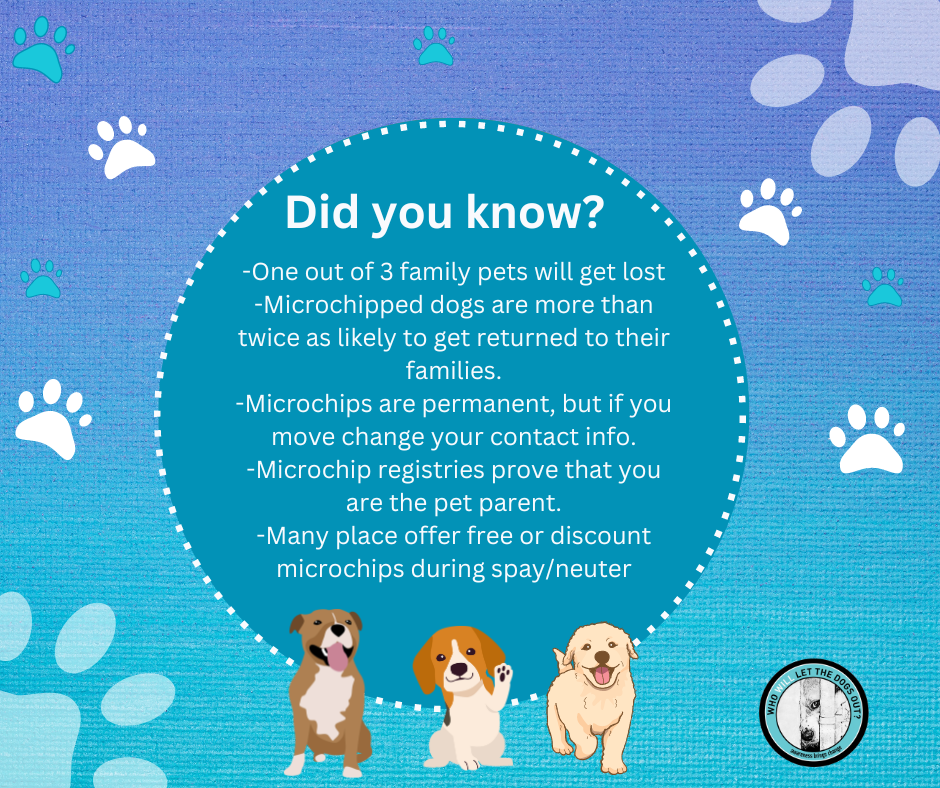
|
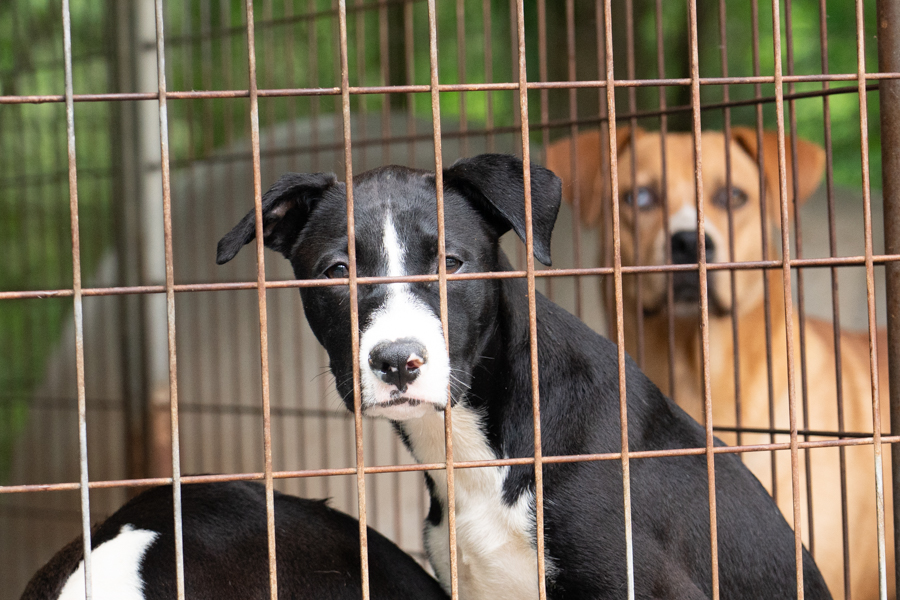
|
|
Tags fall off and get worn down. Microchips are permanent (they are designed to last up to 25 years – I wish our dogs lasted that long!). While tags are still the fastest way to get your dog home, an animal with a microchip is 2.5 times more likely to be reunited with their own as one who is not. Plus, microchips hold up in court, so if you have any reason to believe your dog could ever be a thief’s target, microchipping is a smart move.
|
|
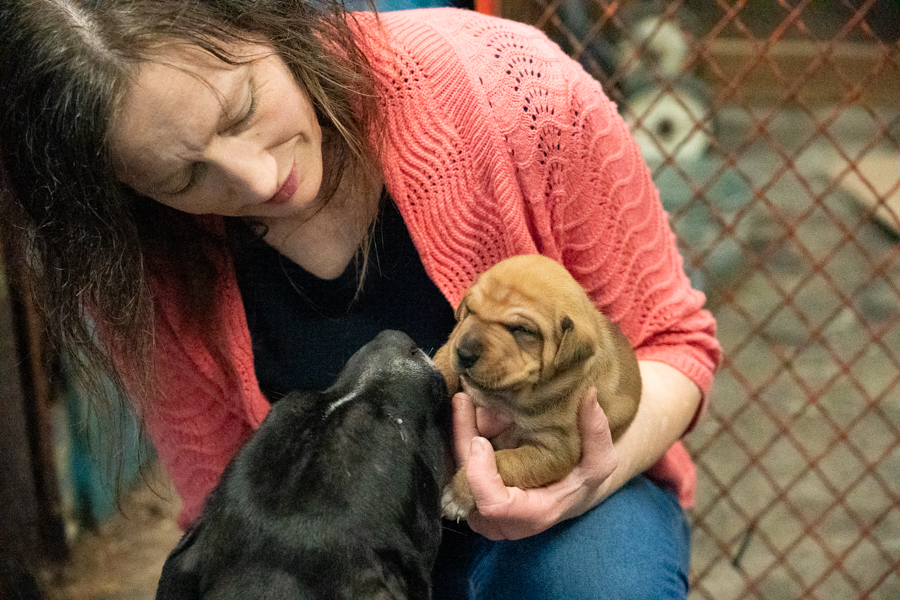
|
Not every microchip activates on the same frequency, so shelters with older microchip readers may not be able to read every chip. Having a universal reader is a critical tool for every shelter. Most shelters microchip any dog that comes into their care if it isn’t chipped already. But too many smaller, struggling shelters do not. Generally, they don’t chip because of the expense. If you’re looking for a way to donate to a struggling shelter, donating a universal chip reader (good ones cost several hundred dollars) or even microchips (and the tools for inserting and reading them) is a great, concrete way to help.
|
|
Why should a shelter microchip the animals in their care? Because it’s one way to up the chances that animal will not end up back in your care.
|
|
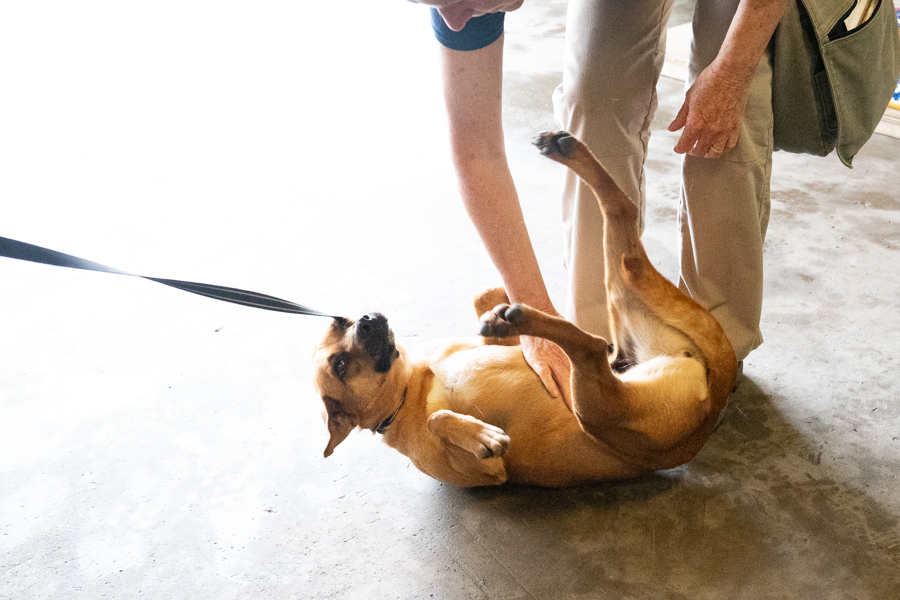
|
|
Because we don’t have one singular national microchip database, it’s a good idea to register your dog’s chip with multiple registries. Some of the for-profit companies charge a fee, but plenty of others do not. Here are a few places to register your chip/info:
|
|

|
|
|
In countries that have mandatory microchipping (and one national microchip database), far fewer animals end up in their shelters. One study found that the return-to-owner rate in Israel (where they have mandatory microchipping and a national database) is 67% compared with far lower rates (about 19%) in the U.S.
|
|
Clearly, microchipping is a no-brainer.
|
|
|
|
|
Until Each One Has A Home,
Cara Achterberg
|
|
|
|
|
Organization Spotlight: AKC Reunite
|
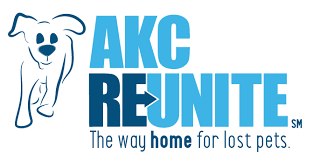
|
AKC Reunite is an invaluable resource that pet-owners and professionals alike should be aware of. Their resource guide provides lots of information useful to both groups and should be something every shelter should have bookmarked!
|
|
For pet-owners, they provide help those who don’t have the resources to pay for microchips for their pet and lost pet recovery service with no annual fees. They also caution pet owners to avoid purchasing microchips with the prefix 9-0-0. The market is flooded with microchips that begin with these numbers and are produced by various Chinese manufacturers. This means that multiple manufacturers are producing and selling some microchips with the same ID number. If two pets have the same microchip ID number, that makes pet reunions complicated or even impossible.
|
|
|
|
Coming Up: The Annual Fall Online Auction!
|

|
Our Annual Fall Auction is slated for September 27 – October 7, 2024. Although that's still several months away, now is the time for us to start planning for our biggest fundraiser of the year. Our 2024 Instagrant fund is already empty. As a completely volunteer-run and donation-based organization, we rely on out Annual Auction to provide tangible help to our partner shelters. We use our instagrants exclusively for investments in items with long-term benefits like kuranda beds, providing new, larger kennels, and improvements to the shelter itself, like repouring concrete floors to prevent worms and parvo. This cornerstone of our programing requires in-kind donations from the community in order to fundraise.
|
Would you like to provide a basket for our auction? Contact us.
|
|
Know an organization that would like to support us?
|
|
|
|
|
|
From the Resource Guide
|
How Shelters Can Help Reunite Pets with Owners
|
Petco Love Lost Maintains a National Lost and Found Pets Database
|
|
According to the American Humane Society, an estimated 10 million pets go missing annually in the US. Many of these pets may never be reunited with their families without a central location to report them lost and found. Petco Love Lost maintains a national database of more than 170,000 dogs and cats, then creates and shares digital lost pet alerts on Nextdoor, Facebook, and via email to help reunite pets with their families. Petco Love Lost uses facial recognition technology to reunite lost dogs and cats with their rightful owners. Whether it’s a new adopter proactively creating a pet profile, an individual who has recently lost a pet, or a shelter or good Samaritan looking to reunite a found pet with his/her owner, Petco Love Lost is a wonderful resource.
|
Animal Shelters Can Help Reunite Pets with Owners
Many people have no idea what to do if they lose their pets. Here are just a few examples from the WWLDO Resource Guide on what animal shelters can do to help reunite lost pets with their families:
|
- Post information on the shelter’s website about what to do if you lose or find a pet. For example, the Kansas City Pet Project animal shelter, MO offers detailed and user-friendly information on its Lost Pet Support web page.
- Make sure it’s easy for people to navigate the reclaim process at the shelter.
- Avoid judging people whose dogs keep getting loose, and instead help them to look for solutions. This may include offering guidance on mending fences and getting pets fixed and/or microchipped.
- Lower-income people are less likely to be reunited with their pets because they cannot afford the reclaim fee. In these situations, shelters can consider returning pets to their homes while waiving this fee or extending the billing date. For example, The Kansas City Pet Project launched a Reclaim Fee Forgiveness Program to help get lost pets back home. Pet owners who reclaim their pets at the shelter within the first three days don’t have to pay a reclaim fee and will not be issued with violation tickets.
|
The Maddie’s Fund Return to Home Challenge offers a list of practices shelters can implement to help reunite pets with their families. The nonprofit HeARTs Speak is another great resource for tips on how to get lost pets reunited with their families. The organization’s “Communications Kit: Lost Pet Reunification” web page includes free customizable templates, best practices, sample web pages, and technology solutions to assist shelters in reuniting lost pets with their families.
|
|
|
|
|
|
|
|
Little Shelter That Could in Robertson County, KY
|
|
|
Robertson County KY Animal Shelter is a tiny municipal shelter located in the tiny rural town of Mt Olivet, Kentucky. We visited the shelter in the fall of 2024. It’s a special place where dogs are saved by remarkable people who don’t let lack of budget or lack of space stop them. Aletha, the director, has worked at the shelter …
|
|
|
|
|
|
|
|
Virtual Volunteer Shelter Liaison Opportunity
Would you like to help raise awareness and resources for homeless dogs and the heroes who champion their cause? As a Shelter Liaison you can make a difference from the comfort of your own home. Shelter Liaisons play a crucial role in virtually supporting our shelter partners. As a Shelter Liaison, you will be monitoring our shelter partners' posts on social media and sharing their news, ideas, and needs.
|
|
|
|
|
|
|
|
Microchipping Grants & Support
|
A few animal welfare foundations offer funding to support microchip programs. For example, the Michelson Found Animals organization offers resources and curates a list of grant opportunities aimed at funding Return to Home programs, which includes microchip costs. Click here.
|
|
Need help applying for a grant? Contact our Grant Advisor Nicole Sandler at nicolemiasandler@gmail.com.
|
|
|
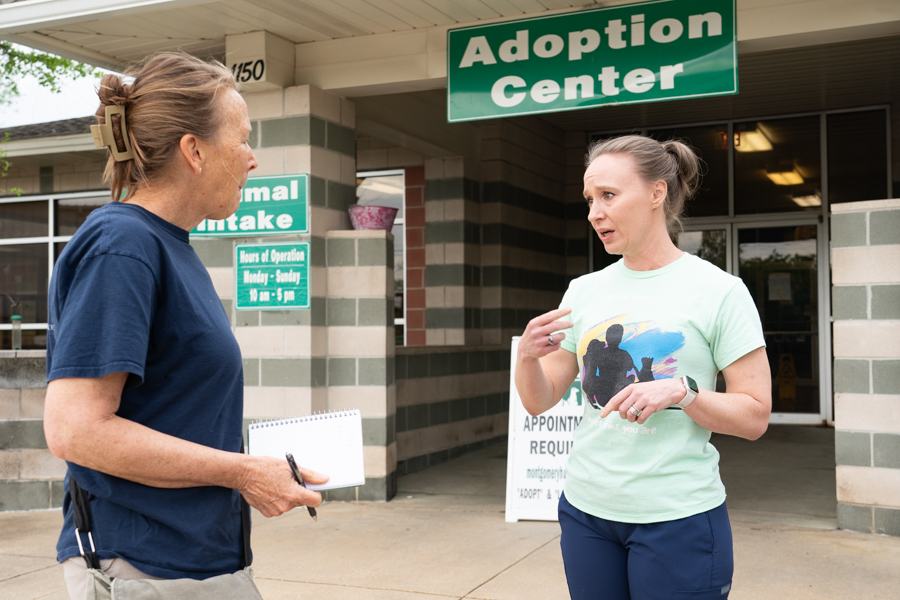
|
Tip of the Month
|
|
|
|
|
CALL TO ACTION:
Help Us Connect With Animal Rescues!
|
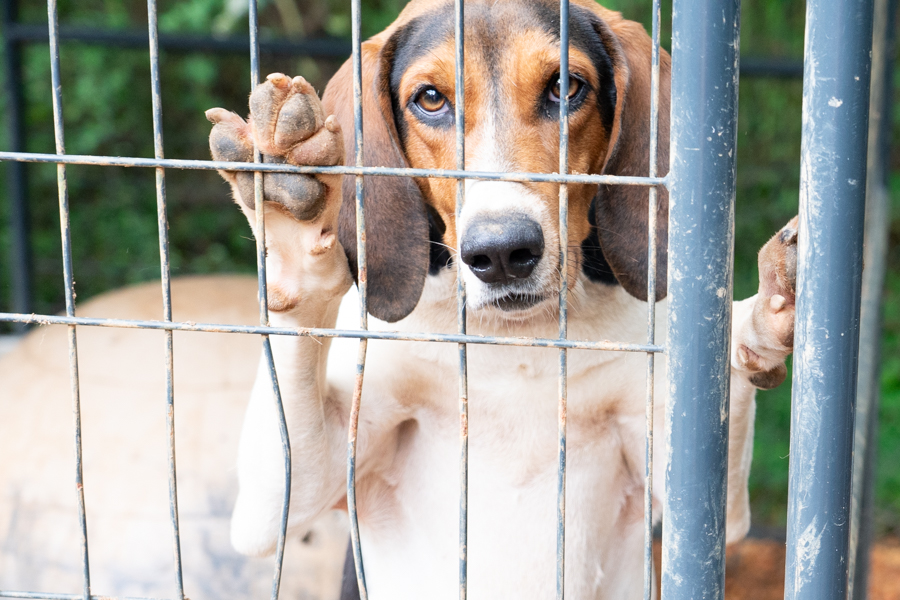
|
Do you know any Animal Rescue or "Friends Of" organizations? The shelters we work with are frequently searching to connect with Animal Rescues across the country to aid in their mission of getting dogs out of shelters and into their forever homes. We are currently working on a project to expand our network of connections with Animal Rescue organizations, and we need your help!
|
What's the difference between an Animal Shelter and a Rescue? Although in everyday conversation the two are often used interchangeably, they operate differently and often in tandem with one another. FuRR Feline Rescue sums it up well: "Shelters are typically funded at the town, city, or state level. People may refer to them as animal control or the pound. Workers at the shelter may be paid... Most rescue organizations in the United States are non-profit 501(c)(3) and run by private individuals or by a small group. Most rescues do not have over-populated facilities and can care for each animal personally." Frequently, animals in rescues start out in public shelters, and shelters love to connect to rescues in order to get help with connecting to adopters, especially for dogs that may need more care or attention. Learn more here.
|
|
If you have a connection to, or even knowledge of, Animal Rescues in your locality, please get in touch so that we may connect with them. The more we can connect our shelter partners with resources to lighten their load, the more lives we can save!
|
|
|
|
|
|
|
|
|
|
|